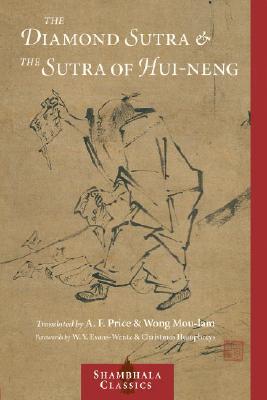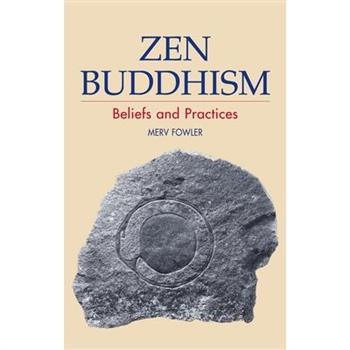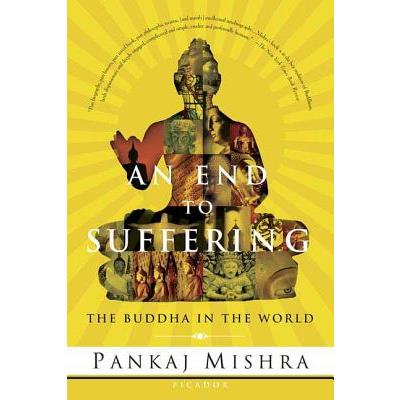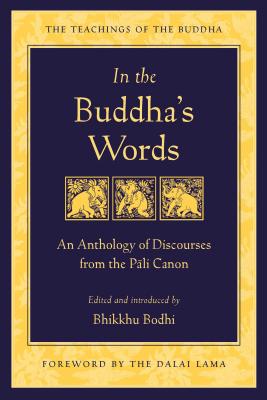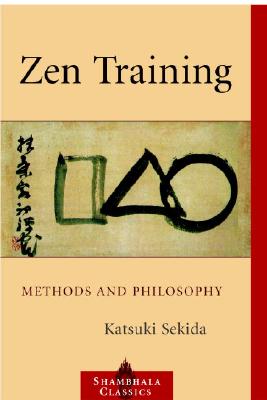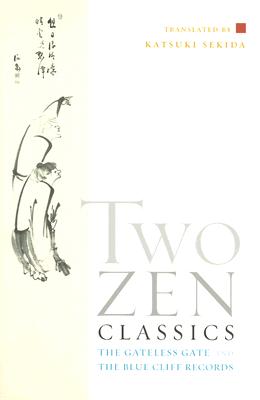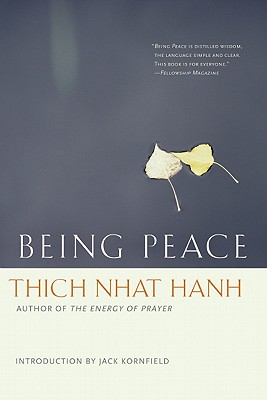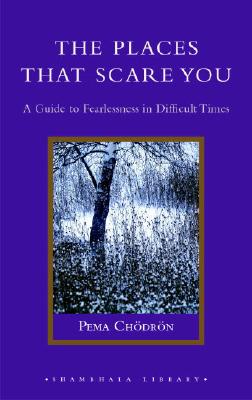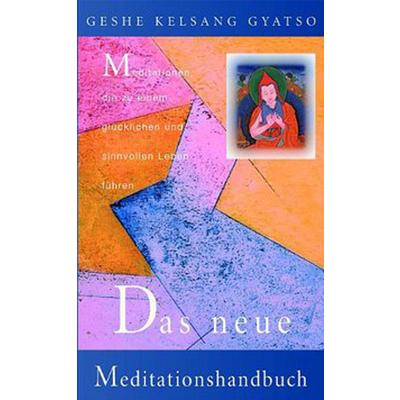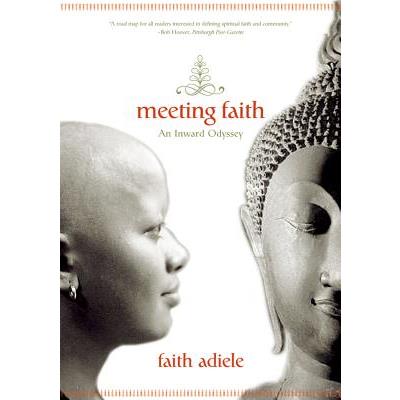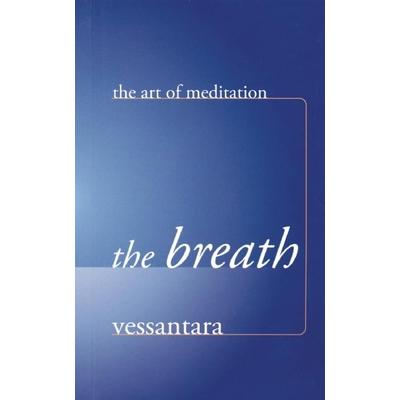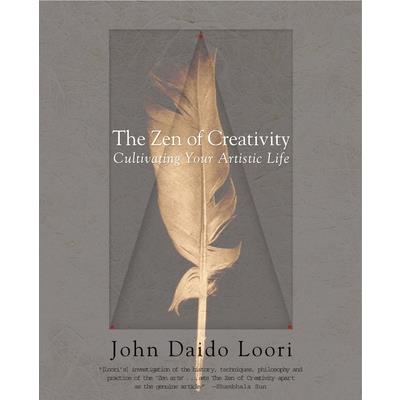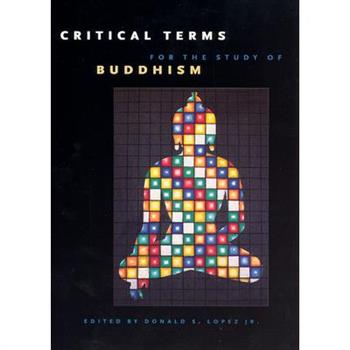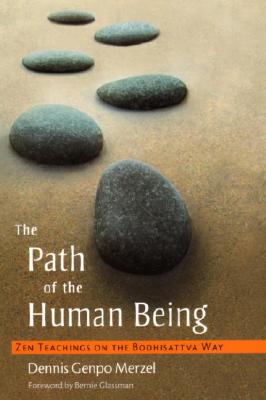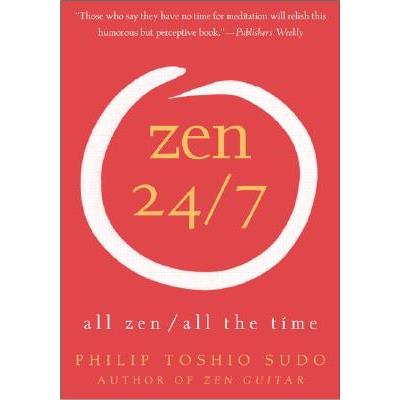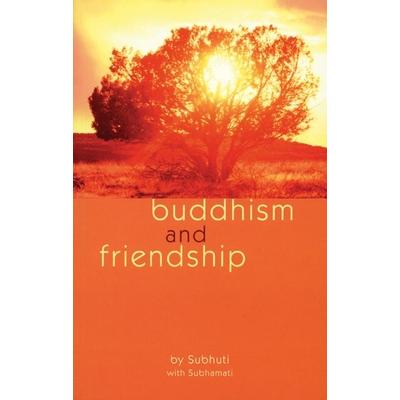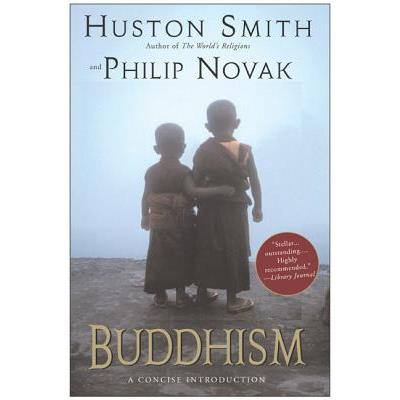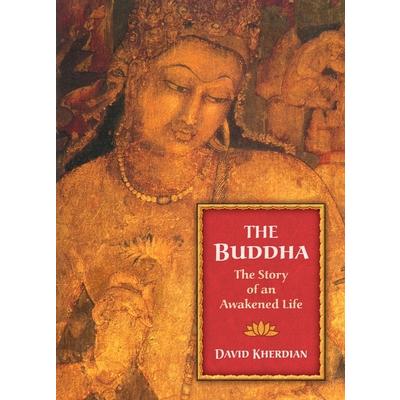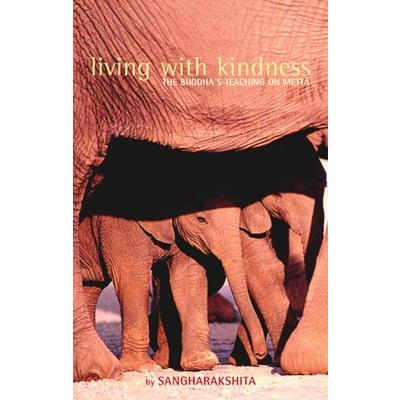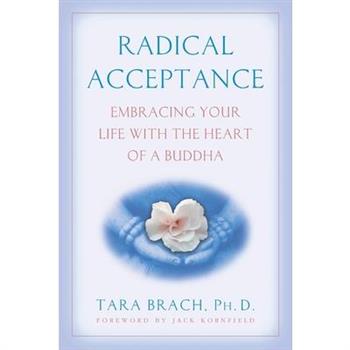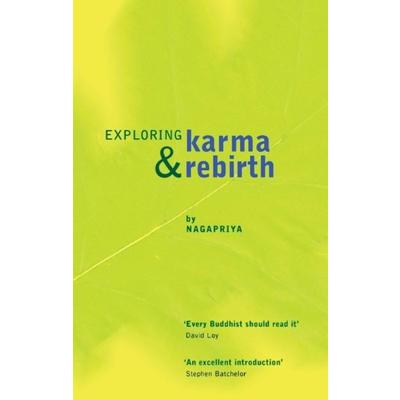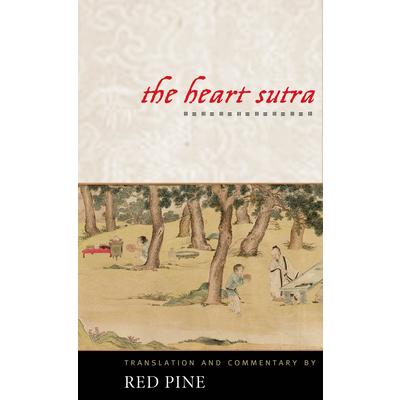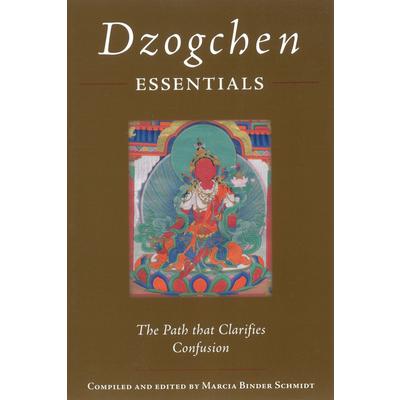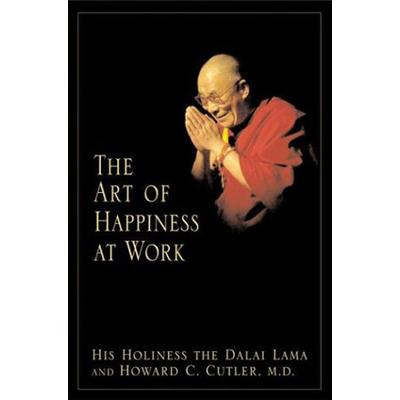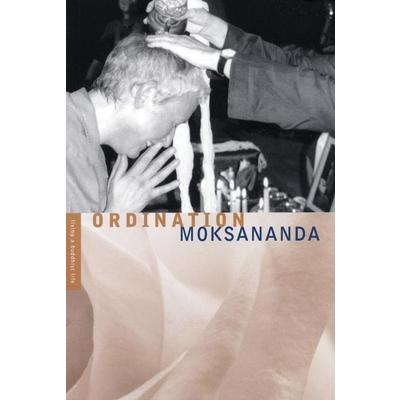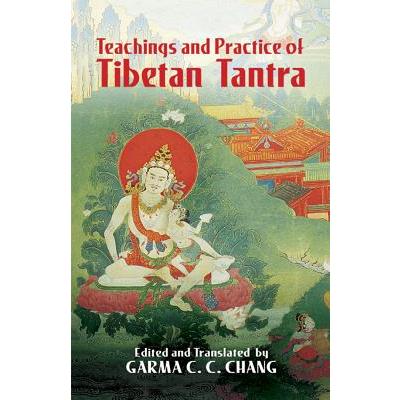A Grammar of Biblical Hebrew
This Grammar of the Hebrew language is one of the most complete such grammars in the English language. Already well known in its two-volume first edition [subsidia biblica n. 14], this is the most extensive revision yet of one of the most complete Hebrew Grammars available in English. That first edition of 1991 was, in its turn, based on the original work in French by Paul Jouon published for the first time in 1923. This edition brings the work up to the present by taking account of developments in our understanding of the Hebrew language during the intervening years. For the first time the work is presented in a single volume. Professor Muraoka hopes that this helps to make the book more attractive and the content easier to use. As with the earlier edition students of the Old Testament, Hebrew and Semitics who have a basic knowledge of Biblical Hebrew will find much useful insight and information here.
Diamond Sutra and the Sutra of Hui-Neng
Two classic Zen Buddhist texts that present the foundational teachings of the tradition--now collected in one volume for the modern practitionerThe Diamond Sutra, composed in India in the fourth century CE, is one of the most treasured works of Buddhist literature and is the oldest existing printed book in the world. It is known as the Diamond Sutra because its teachings are said to be like diamonds that cut away all dualistic thought, releasing one from the attachment to objects and bringing one to the further shore of enlightenment. The format of this important sutra is presented as a conversation between the Buddha and one of his disciples. The Sutra of Hui-neng, also known as the Platform Sutra, contains the autobiography of a pivotal figure in Zen history and some of the most profound passages of Zen literature. Hui-neng (638-713) was the sixth patriarch of Zen in China but is often regarded as the true father of the Zen tradition. He was a poor, illiterate woodcutter who is said to have attained enlightenment upon hearing a recitation of the Diamond Sutra. Together, these two scriptures present the central teaching of the Zen Buddhist tradition and are essential reading for all students of Buddhism.
How To Cook Your Life
This modern-day commentary on Dogen's Instructions for a Zen Cook reveals how everyday activities--like cooking--can be incorporated into our spiritual practice In the thirteenth century, Zen master Dogen--perhaps the most significant of all Japanese philosophers, and the founder of the Japanese Soto Zen sect--wrote a practical manual of Instructions for the Zen Cook. In drawing parallels between preparing meals for the Zen monastery and spiritual training, he reveals far more than simply the rules and manners of the Zen kitchen; he teaches us how to "cook," or refine our lives. In this volume Kosho Uchiyama Roshi undertakes the task of elucidating Dogen's text for the benefit of modern-day readers of Zen. Taken together, his translation and commentary truly constitute a "cookbook for life," one that shows us how to live with an unbiased mind in the midst of our workaday world.
Zen Buddhism
Informed by almost two decades of dialogue, research and teaching, this book refutes the mistaken premise that Zen Buddhism is more suited to people who lived all those years ago, or at least live all those miles away. Pivotal to this work is recognition that Buddhism is a mind culture. To appreciate that one is not in control of one's own mind is alarming indeed, but it is our perceptions of real and imagined threats that generate our anxieties, not an objective appraisal of the situation. Beginning with the annotated 'ox path' pictures, the gradual development of the wayward mind away from aimless wandering and towards Buddhahood is depicted and examined. Ever mindful of the legacy of India, the life and teaching of Sakyamuni Buddha are revisited as are the scriptures themselves. At every point, this book presents Zen Buddhism, not as some esoteric mystery cult, accessible only to the eastern mind, but in an animated, meaningful manner that demonstrates its purpose and function in today's world.
An End to Suffering
An End to Suffering is a search to understand the Buddha's relevance in a world where class oppression and religious violence are rife, and where poverty and terrorism cast a long, constant shadow. Pankaj Mishra describes his restless journeys into India, Pakistan, and Afghanistan, among Islamists and the emerging Hindu middle class, exploring the myths and places of the Buddha's life. He discusses Western explorers' "discovery" of Buddhism in the nineteenth century. He also considers the impact of Buddhist ideas on such modern politicians as Gandhi and Nelson Mandela. As he reflects on his travels and on his own past, Mishra ultimately reaches an enlightenment of his own by discovering the living meaning of the Buddha's teaching, in this "unusually discerning, beautifully written, and deeply affecting reflection on Buddhism" (Booklist).
In the Buddha's Words
This landmark collection is the definitive introduction to the Buddha's teachings - in his own words. The American scholar-monk Bhikkhu Bodhi, whose voluminous translations have won widespread acclaim, here presents selected discourses of the Buddha from the Pali Canon, the earliest record of what the Buddha taught. Divided into ten thematic chapters, In the Buddha's Words reveals the full scope of the Buddha's discourses, from family life and marriage to renunciation and the path of insight. A concise, informative introduction precedes each chapter, guiding the reader toward a deeper understanding of the texts that follow. This book contains: Clear translations of the Buddha's original teachings Thoughtfully curated selections from the Pali Canon Chapters on the Buddha's life, rebirth, suffering, liberation, and practice A foreword by His Holiness the Dalai Lama In the Buddha's Words allows even readers unacquainted with Buddhism to grasp the significance of the Buddha's contributions to our world heritage. Taken as a whole, these texts bear eloquent testimony to the breadth and intelligence of the Buddha's teachings, and point the way to an ancient yet ever-vital path. Practitioners and scholars alike will find this systematic presentation indispensable. Dive into the world of the Buddha through these easy-to-read English translations of the Pali Canon. The Pali Canon is the literary, intellectual, and spiritual foundation of Theravada Buddhism. This volume, being organized in a progressive manner "from the simple to the difficult, from the elementary to the profound," makes it well-suited for those looking for an accessible introduction to the Theravadin scriptural corpus, as well as being a valuable resource for those familiar with the Pali Canon but wanting a more structured presentation of the materials.
Zen Training
This pioneering guide to zazen--Zen-style seated meditation--provides practical instructions on how to begin or elevate your practice and progress along the Zen path Zen Training is a comprehensive handbook for zazen, seated meditation practice, and an authoritative presentation of the Zen path. The book marked a turning point in Zen literature in its critical reevaluation of the enlightenment experience, which the author believes has often been emphasized at the expense of other important aspects of Zen training. In addition, Zen Training goes beyond the first flashes of enlightenment to explore how one lives as well as trains in Zen. The author also draws many significant parallels between Zen and Western philosophy and psychology, comparing traditional Zen concepts with the theories of being and cognition of such thinkers as Heidegger and Husserl.
Two Zen Classics
A new translation of The Gateless Gate and The Blue Cliff Records, two classic collections of Zen koans--or guiding 'riddles'--used in the study of Zen Buddhism The strange verbal paradoxes called koans have been used traditionally in Zen training to help students attain a direct realization of truths inexpressible in words. The two works translated in this book, Mumonkan (The Gateless Gate) and Hekiganroku (The Blue Cliff Records), both compiled during the Song dynasty in China, are the best known and most frequently studied koan collections, and are classics of Zen literature. They are still used today in a variety of practice lineages, from traditional zendos to modern Zen centers. In a completely new translation, together with original commentaries, the well-known Zen teacher Katsuki Sekida brings to these works the same fresh and pragmatic approach that made his Zen Training so successful. The insights of a lifetime of Zen practice and his familiarity with both Eastern and Western ways of thinking make him an ideal interpreter of these texts.
Being Peace
THE BELOVED SPIRITUAL CLASSIC: A timeless introduction to Thich Nhat Hanh's most important teachings, revealing the connection between peace in oneself and peace in the world. Featuring an introduction by A Path with Heart author Jack Kornfield! A bestseller with over 250,000 copies sold and translated into more than 30 languages, Being Peace is the seminal founding work by Zen Master and Nobel Peace Prize nominee Thich Nhat Hanh. With a new introduction by Jack Kornfield, this eloquent meditation on "being peace in order to make peace" is more relevant than ever as it reveals the connection between our own happiness and the state of the world around us. Thich Nhat Hanh's key practices are resented in simple and clear language, offering practical suggestions for how to create a more peaceful world "right in the moment we are alive." At once a useful refresher and an introduction to Buddhism, Being Peace is a timely, essential read for everyday peacemakers concerned about the state of the world and the quality of our lives.
Be Free Where You Are: A Talk Given at the Maryland Correctional Institution
Freedom is not given to us by anyone; we have to cultivate it ourselves. This compendium of the core teachings of Thich Nhat Hanh, based on a talk given at a prison, shows how mindfulness practice can cultivate freedom no matter where you are.
Calming the Fearful Mind
In a time of terrorism and uncertainty, how can any of us feel truly safe? Zen Master Thich Nhat Hanh looks at the real roots of terrorism and fear and offers the way out: a path of compassion and open-heartedness. In this unique book, Thich Nhat Hanh teaches that we will only be safe when we acknowledge our real enemies, not other human beings, but our own ignorance, discrimination, fear, craving, and violence. With clarity and gentleness, Nhat Hanh offers step-by-step instructions for calming the mind and looking deeply into our own misperceptions. His own generosity of spirit and love for all beings models a path out of uncertainty and towards peace. By calming our minds and looking deeply into our hearts, will we have the insight to identify the roots of terrorism. Only with the practice of compassion, deep listening, and mindful communication can terrorism be transformed and uprooted. Calming the Fearful Mind offers key teachings designed to help heal the misunderstanding, fear, and hatred that divide us as individuals, groups, and nations. An invaluable book for anyone who has wondered how to deal with anger and the desire for retaliation. Calming the Fearful Mind is, ultimately, a book about finding peace. It takes Thich Nhat Hanh's signature mindfulness practices and reveals how they can help us address our most challenging and most deeply rooted fears.
The Places That Scare You
"A lively and accessible take on ancient techniques for transforming terror and pain into joy and compassion," from beloved Buddhist teacher Pema Ch繹dr繹n (O, The Oprah Magazine) Lifelong guidance for changing the way we relate to the scary and difficult moments of our lives--showing us how we can use our difficulties and fears as a way to soften our hearts and open us to greater kindness We always have a choice in how we react to the circumstances of our lives. We can let them harden us and make us increasingly resentful and afraid, or we can let them soften us and allow our inherent human kindness to shine through. In The Places That Scare You, Pema Ch繹dr繹n provides essential tools for dealing with the many difficulties that life throws our way, teaching us how to awaken our basic human goodness and connect deeply with others--to accept ourselves and everything around us complete with faults and imperfections. Drawing from the core teachings of Buddhism, she shows the strength that comes from staying in touch with what's happening in our lives right now and helps us unmask the ways in which our egos cause us to resist life as it is. If we go to the places that scare us, Pema suggests, we just might find the boundless life we've always dreamed of.
Das Neue Meditationshandbuch
Das neue Meditationshandbuch ist ein praktischer Leitfaden f羹r die Meditation. Er lehrt uns, wie wir uns selbst und andere gl羹cklich machen, indem wir inneren Frieden entwickeln und dadurch unserem Leben mehr Sinn verleihen. Ohne inneren Frieden gibt es 羹berhaupt kein wirkliches Gl羹ck. Probleme, Leiden und Ungl羹ck existieren nicht au?erhalb des Geistes. Es sind Gef羹hle und somit sind sie Teil unseres Geistes. Deshalb k繹nnen wir unsere Probleme nur dauerhaft l繹sen und uns selbst und andere wirklich gl羹cklich machen, wenn wir Kontrolle 羹ber unseren Geist gewinnen. Die 21 buddhistischen Meditations羹bungen, die dieses Buch pr瓣sentiert, sind die eigentlichen Methoden, wie wir unseren Geist z瓣hmen und anhaltenden inneren Frieden erfahren k繹nnen. Dieser au?erordentlich praktische Leitfaden ist f羹r alle, die nach Gl羹ck und Sinn in ihrem Leben suchen, ein unentbehrliches Handbuch.
Meeting Faith
Reluctantly leaving behind Pop Tarts and pop culture to battle flying rats, hissing cobras, forest fires, and decomposing corpses, Faith Adiele shows readers in this personal narrative, with accompanying journal entries, that the path to faith is full of conflicts for even the most devout. Residing in a forest temple, she endured nineteen-hour daily meditations, living on a single daily meal, and days without speaking. Internally Adiele battled against loneliness, fear, hunger, sexual desire, resistance to the Buddhist worldview, and her own rebellious Western ego. Adiele demystifies Eastern philosophy and demonstrates the value of developing any practice--Buddhist or not. This "unlikely, bedraggled nun" moves grudgingly into faith, learning to meditate for seventy-two hours at a stretch. Her witty, defiant twist on the standard coming-of-age tale suggests that we each hold the key to overcoming anger, fear, and addiction; accepting family; redefining success; and re-creating community and quality of life in today's world.
Living With The Devil
Stephen Batchelor's seminal work on humanity's struggle between good and evil In the national bestseller Living with the Devil, Batchelor traces the trajectory from the words of the Buddha and Christ, through the writings of Shantideva, Milton, and Pascal, to the poetry of Baudelaire, the fiction of Kafka, and the findings of modern physics and evolutionary biology to examine who we really are, and to rest in the uncertainty that we may never know. Like his previous bestseller, Buddhism without Beliefs, Living with the Devil is also an introduction to Buddhism that encourages readers to nourish their "buddha nature" and make peace with the devils that haunt human life. He tells a poetic and provocative tale about living with life's contradictions that will challenge you to live your life as an existence imbued with purpose, freedom, and compassion--rather than habitual self-interest and fear.
The Breath
Calm, awareness, peace, openness.Developing these characteristics is part of what the mindfulness of breathing meditation can offer. Join Vessantara, an experienced meditator and teacher, for an exploration of one of the most common meditation practices. Found in most Buddhist traditions, yoga and, most recently, stress management techniques, the mindfulness of breathing is something we can integrate into our daily lives.With practical examples balanced with clear descriptions of the practice's philosophy, Mindfulness of Breathing offers an accessible foundation for us to develop more focus, more evenness in our everyday emotions as well as more openness and awareness to the world we're in. For to be better for those around us, we need to be more at ease with ourselves.
The Zen Of Creativity
For many of us, the return of Zen conjures up images of rock gardens and gently flowing waterfalls. We think of mindfulness and meditation, immersion in a state of being where meaning is found through simplicity. Zen lore has been absorbed by Western practitioners and pop culture alike, yet there is a specific area of this ancient tradition that hasn't been fully explored in the West. Now, in The Zen of Creativity, American Zen master John Daido Loori presents a book that taps the principles of the Zen arts and aesthetic as a means to unlock creativity and find freedom in the various dimensions of our existence. Loori dissolves the barriers between art and spirituality, opening up the possibility of meeting life with spontaneity, grace, and peace. Zen Buddhism is steeped in the arts. In spiritual ways, calligraphy, poetry, painting, the tea ceremony, and flower arranging can point us toward our essential, boundless nature. Brilliantly interpreting the teachings of the artless arts, Loori illuminates various elements that awaken our creativity, among them still point, the center of each moment that focuses on the tranquility within; simplicity, in which the creative process is uncluttered and unlimited, like a cloudless sky; spontaneity, a way to navigate through life without preconceptions, with a freshness in which everything becomes new; mystery, a sense of trust in the unknown; creative feedback, the systematic use of an audience to receive noncritical input about our art; art koans, exercises based on paradoxical questions that can be resolved only through artistic expression. Loori shows how these elements interpenetrate and function not only in art, but in all our endeavors. Beautifully illustrated and punctuated with poems and reflections from Loori's own spiritual journey, The Zen of Creativity presents a multilayered, bottomless source of insight into our creativity. Appealing equally to spiritual seekers, artists, and veteran Buddhist practitioners, this book is perfect for those wishing to discover new means of self-awareness and expression--and to restore equanimity and freedom amid the vicissitudes of our lives.
Critical Terms For The Study Of Buddhism
Over the past century, Buddhism has come to be seen as a world religion, exceeding Christianity in longevity and, according to many, philosophical wisdom. Buddhism has also increasingly been described as strongly ethical, devoted to nonviolence, and dedicated to bringing an end to human suffering. And because it places such a strong emphasis on rational analysis, Buddhism is considered more compatible with science than the other great religions. As such, Buddhism has been embraced in the West, both as an alternative religion and as an alternative to religion. This volume provides a unique introduction to Buddhism by examining categories essential for a nuanced understanding of its traditions. Each of the fifteen essays here shows students how a fundamental term--from art to word--illuminates the practice of Buddhism, both in traditional Buddhist societies and in the realms of modernity. Apart from Buddha, the list of terms in this collection deliberately includes none that are intrinsic to the religion. Instead, the contributors explore terms that are important for many fields and that invite interdisciplinary reflection. Through incisive discussions of topics ranging from practice, power, and pedagogy to ritual, history, sex, and death, the authors offer new directions for the understanding of Buddhism, taking constructive and sometimes polemical positions in an effort both to demonstrate the shortcomings of assumptions about the religion and the potential power of revisionary approaches. Following the tradition of Critical Terms for Religious Studies, this volume is not only an invaluable resource for the classroom but one that belongs on the short list of essential books for anyone seriously interested in Buddhism and Asian religions.
The Great Path Of Awakening
Here is a practical Buddhist guidebook that offers techniques for developing a truly compassionate heart in the midst of everyday life. For centuries, Tibetans have used fifty-nine pithy slogans--such as "A joyous state of mind is a constant support" and "Don't talk about others' shortcomings"--as a means to awaken kindness, gentleness, and compassion. While Tibetan Buddhists have long valued these slogans, recently they have become popular in the West due to such books as Start Where You Are by Pema Ch繹dr繹n and Training the Mind by Ch繹gyam Trungpa. This edition of The Great Path of Awakening contains an accessible, newly revised translation of the slogans from the famous text The Seven Points of Mind Training . It also includes illuminating commentary from Jamgon Kongtrul that provides further instruction on how to meet every situation with intelligence and an open heart.
The Blue Cliff Record
A classic of Zen Buddhist literature, this compilation of twelfth-century Zen koans includes commentary and verses from the great Chinese Zen masters The Blue Cliff Record is a translation of the Pi Yen Lu, a collection of one hundred famous Zen koans accompanied by commentaries and verses from the teachings of Chinese Zen masters. Compiled in the twelfth century, it is considered one of the great treasures of Zen literature and an essential study manual for students of Zen.
Keeping The Peace
Keeping the Peacespeaks to all of us who work in difficult, people-oriented jobs and shows us how to turn environments that are often filled with anger, stress, and frustration into islands of peace. Zen Master Thich Nhat Hanh creates a revolutionary definition of public service that includes all of us. He challenges us to transform the way we think about our work and offers eleven key practices to strengthen our mindfulness and joy. Based on a retreat for civil servants, Keeping the Peace is the first book of its kind to demonstrate the usefulness of mindfulness practices for law enforcement officers, social workers, teachers, and others in people-helping professions. With empathy and humor, Thich Nhat Hanh demonstrates the need for public service professionals to cultivate their own inner peace in order to help others. In clear and simple prose, he offers a path for how we can reduce violence in ourselves, our workplace, and ultimately, in our world.
The Path Of The Human Being
Dennis Merzel, one of the most highly regarded American Zen teachers, explains how meditation can gradually lead us to becoming more and more familiar with our minds, allowing us to better understand ourselves and the nature of human life. He explores the practice of meditation in depth, as well as a range of related topics including: connecting meditation practice to everyday life, understanding central Zen concepts, working with a teacher, and practicing meditation in the midst of difficult times.
Zen 24/7
Enlightenment is within reach -- 24 hours a day, 7 days a week.If you're searching for revelation and contentment, look no further than a handshake, a cup of coffee -- even your laundry pile. The most mundane details of life contain zen's profound truths, if you're of the mind to look for them.By awakening to and embracing the zen in your life, you'll listen, watch, eat, work, laugh, sleep, and breathe your way to truth -- every moment of every day.
Peaks And Lamas
Several years ago, Wendell Berry recommended we read Marco Pallis' Peaks and Lamas. He had obtained a copy of this out of print and elusive title, and upon reading it wrote saying, "I have a very high opinion of it." He praised the writing on travel and mountaineering, but he was specially drawn to the writing about Buddhism, the chapters on Tibetan Art, and went on "this is the best book, in my limited reading, in connecting a form of Buddhism with its sustaining culture. It would be useful to anybody interested in what a traditional culture is or might be, and how such a culture might preserve itself." With Wendell Berry, Gary Snyder and Robert Aitken offering encouragement, we could hardly ignore the imperative of putting this remarkable text, out of print for at least thirty years, back into print for a whole new generation of readers.
Buddhism and Friendship
Delves into teachings and stories from the Buddhist scriptures and draws on Western thinkers and personal experience, offers practical ways for us to cultivate, deepen, and extend our friendships to help inspire and shape our spiritual lives.
The Buddha
A simple, inspiring telling of the life of the Buddha by an award-winning, best-selling author. Here is an opportunity to approach one of the world's greatest spiritual teachers through the timeless tale of his search for enlightenment and the end of suffering. This is the first account of the Buddha's story that blends the elements of history, legend, and Buddhist teachings into a compelling, page-turning narrative. Experience the Buddha's life, from his extravagant youth and ascetic renunciation to awakening and decades of profound teaching.
Living With Kindness
Kindness is one of the most basic qualities we can possess, and one of the most powerful. Living with Kindness shows us how to cultivate many of the facets of kindness in ordinary, everyday life through the Buddha's teaching of metta in the Karaniya metta sutta. Encourages us to follow the path that leads to a warm and expansive heart.
Radical Acceptance
In our current times of global crises and spiking collective anxiety, Tara Brach's transformative practice of Radical Acceptance offers a pathway to inner freedom and a more compassionate world. This classic work now features an insightful new introduction, an exclusive bonus chapter, and additional guided meditations. "Radical Acceptance offers us an invitation to embrace ourselves with all our pain, fear, and anxieties, and to step lightly yet firmly on the path of understanding and compassion."--Thich Nhat Hanh "Believing that something is wrong with us is a deep and tenacious suffering," says Tara Brach at the start of this illuminating book. This suffering emerges in crippling self-judgments and conflicts in our relationships, in addictions and perfectionism, in loneliness and overwork--all the forces that keep our lives constricted and unfulfilled. Radical Acceptance offers a path to freedom, including the day-to-day practical guidance developed over Dr. Brach's forty years of work with therapy clients and Buddhist students. Writing with great warmth and clarity, Tara Brach brings her teachings alive through personal stories and case histories, fresh interpretations of Buddhist tales, and guided meditations. Step by step, she shows us how we can stop being at war with ourselves and begin to live fully every precious moment of our lives.
Exploring Karma & Rebirth
Every Buddhist should read it --David Loy An excellent introduction --Stephen Batchelor Cogent, knowledgeable, and penetrating--Norman FischerClarifies, examines and considers these two important but often misunderstood Buddhist doctrines. Offers an imaginative reading of what the teachings could mean for us now.
The Spiritual Legacy Of Shaolin Temple
Combining the genius of Chan (Zen) Buddhism and Daoism with rigorous physical and martial discipline and breathing exercises, the training that originated at China's famous Shaolin Temple was a unique elixir that would change the way the world perceived mind and body. Here, Andy James exposes the hitherto unrecognized spiritual legacy of Shaolin Temple, which has provided modernity with comprehensive, time-tested techniques in martial arts, health maintenance, energetic healing and spiritual transformation. In addition to Buddhism and Daoism, James explores Qigong (Chi Kung) and the internal systems of martial arts such as Taijiquan (Tai Chi Chuan). While many books have traced Chan's story into Japan, James remains in China to explain how the unique spiritual, martial and energetic traditions of the Shaolin Temple continued to interact and evolve in dynamic relation to culture, society, and the individual. This engaging and very personal book will appeal to martial arts enthusiasts, healing arts professionals, and anyone interested in the mind-body connection.
Dzogchen Essentials
For centuries, the form of Buddhist meditation known as Dzogchen was a closely held tradition, one virtually unknown outside of Tibet's monasteries. Now available in an accessible guide, the essential tenets and methods of Dzogchen - as relayed by a master - show readers how to access the pure, clear awareness that sits just beneath a constant flow of anxious thoughts. Helpful for both study and practice, this book is an ideal adjunct to following this rich spiritual path.
The Art Of Happiness At Work
From the authors who brought you the million-copy bestseller The Art of Happiness comes an exploration of job, career, and finding the ultimate happiness at work. Over the past several years, Howard Cutler has continued his conversations with the Dalai Lama, asking him the questions we all want answered about how to find happiness in the place we spend most of our time. Work-whether it's in the home or at an office-is what mostly runs our lives. We depend on it to eat, to clothe and shelter ourselves, and to take care of our families. Beginning with a direct correlation between productivity and happiness, Dr. Cutler questions His Holiness about the nature of work. In psychiatry and according to the Dalai Lama, our motivation for working determines our level of satisfaction. The book explores three levels of focus: survival, career, and calling. Once again, Cutler walks us through the Dalai Lama's reasoning so that we know how to apply the wisdom to daily life. This practical application of Buddhist ideas is an invaluable source of strength and peace for anyone who earns a living.
Ordination
Ordination: a spiritual journey, a noble quest, a lived myth, a rite of passage. Finding something of true value that evokes our faith and commitment is rare indeed, especially in a time when positive myths are in danger of disappearing. Those in the West today seeking ordination as Buddhists are still convinced of the need to commit to the search for spiritual awakening. Looking at themes such as altruism, purity, loyalty, and courage, and drawing on the example of the Western Buddhist Order, Ordination offers some of the mystery and challenge, confusion and joy the quest can entail. Moksananda's conviction and longing - just as strong eighteen years after his own ordination - will echo in many people's hearts as they search for life's meaning. Also in this series: Living Together, Meditating, Principles of Buddhism, Vegetarianism
Mind of Clear Light
"Everyone dies, but no one is dead," goes the Tibetan saying. It is with these words that Advice on Dying takes flight. Using a seventeenth-century poem written by a prominent scholar-practitioner, His Holiness the Dalai Lama draws from a wide range of traditions and beliefs to explore the stages we all go through when we die, which are the very same stages we experience in life when we go to sleep, faint, or reach orgasm (Shakespeare's "little death"). The stages are described so vividly that we can imagine the process of traveling deeper into the mind, on the ultimate journey of transformation. In this way, His Holiness shows us how to prepare for that time and, in doing so, how to enrich our time on earth, die without fear or upset, and influence the stage between this life and the next so that we may gain the best possible incarnation. As always, the ultimate goal is to advance along the path to enlightenment. Advice on Dying is an essential tool for attaining that eternal bliss.
The Lotus-Born
The Lotus-Born is the amazing story of the mystic, master scholar, and outrageous yogi Padmasambhava, who grew up an adopted prince, was banished, and burned at the stake in a neighboring kingdom, yet continued, miraculously unscathed, to live more than 500 years. His dramatic, illuminating story is available for the first time in English in this translation of Princess Yeshe Tsogyal's ninth-century biography of Padmasambhava. A master whose insights filigree this book, Padmasambhava is considered second in importance only to the Buddha in the Tibetan spiritual tradition.
Teachings And Practice Of Tibetan Tantra
Concise guide describes the art of spiritualizing one's sexuality and offers efficient methods for transmuting fear and attachment into love and universal power. Step-by-step instructions demonstrate how to perform traditional yoga exercises and provide practical applications for expanding and liberating one's consciousness. A wealth of information for students of religion.
Don’T-Know Mind
"Don't-know mind" is our enlightened mind before ideas, opinions, or concepts arise to create suffering. Practicing with don't-know mind has long been a central concern of Korean Zen. Here, an American Zen master in the Korean lineage brings the teaching to life by using stories about the Chinese and Korean Zen masters as jumping-off points for his own teaching. Don't-Know Mind is a clear, direct, and heartfelt presentation of Zen teaching applicable to anyone, both for formal practice and for all the rest of life.






